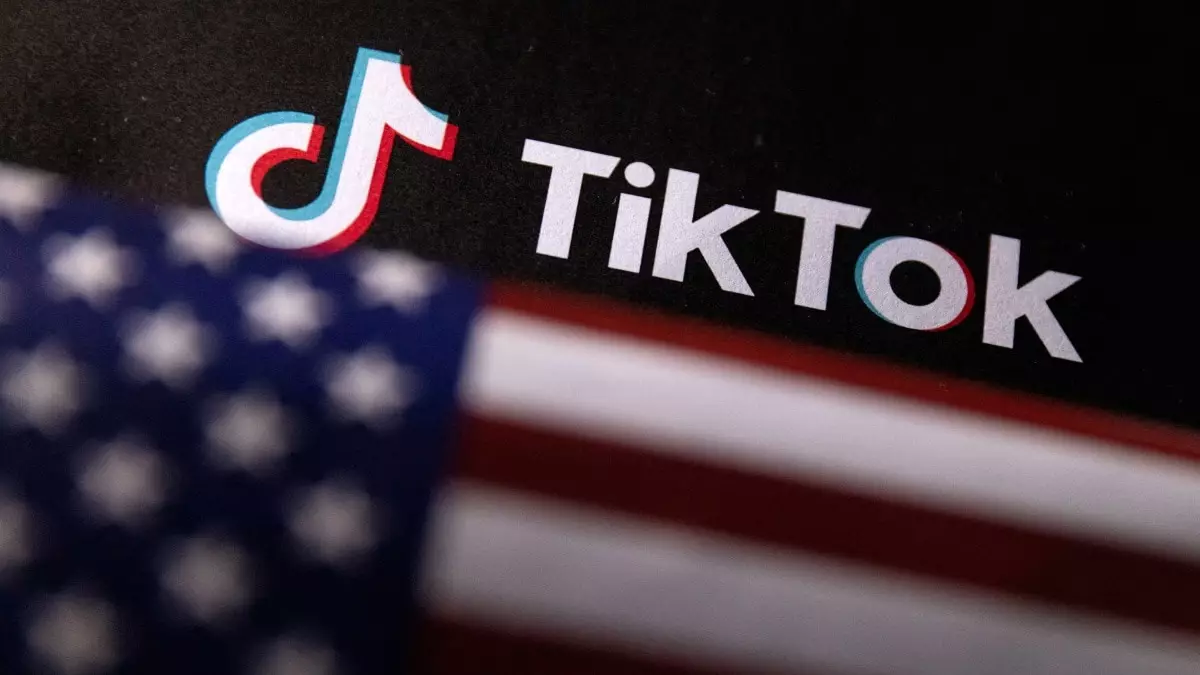As the American political landscape shifts with the impending transition of power, one significant issue looms large: the regulation of TikTok. The popular social media platform, favored by over 170 million users in the United States, finds itself at the center of a legal and political storm that has implications not only for its future but also for the incoming administration of President-elect Donald Trump. A pending Supreme Court decision will determine whether to uphold a law that mandates Chinese company ByteDance to divest from TikTok or face a nationwide ban. This situation raises pertinent questions about national security, free speech, and the evolving relationship between the United States and its technological rivals.
Trump’s Shift in Position
President-elect Trump’s pivot from his 2020 stance against TikTok is striking. Previously advocating for the app’s ban due to its Chinese ownership, Trump’s current approach signals a significant departure. This change reflects the complexity of his administration’s relationship with the evolving landscape of social media and international business. By advocating for a delay in the implementation of the law, Trump appears to be laying the groundwork for a political resolution that favors more lenient oversight of the platform. Such a strategy may be motivated by his unique understanding of TikTok’s potential to influence public opinion and its role in engaging younger voters—an essential demographic for any political campaign.
The Supreme Court is poised to deliberate on this high-stakes matter with hearings scheduled for January 10. The 2023 law, which calls for TikTok’s divestiture by January 19, holds broad implications. If the justices rule against TikTok and ByteDance does not comply with the order, the application could effectively disappear from American app stores, significantly impacting its user base and the broader social media ecosystem. Trump’s legal representation, led by D. John Sauer, emphasizes a desire for the court to pause the law’s implementation, allowing for a potential reconsideration under the new administration.
This request for a delay reflects the contentious nature of the discourse surrounding TikTok. On one hand, concerns about data security and national integrity are pressing; on the other, advocates caution against overreaching measures that could resemble censorship. The dilemma pitted against free speech advocates and national security proponents exemplifies a broader struggle within the U.S. legal and political systems regarding technology and its implications for privacy, security, and individual rights.
The Larger Context: Security and Censorship
The U.S. Justice Department’s apprehensions about TikTok’s ties to China echo a growing bipartisan consensus about technological sovereignty. With fears of espionage and data misuse at the forefront, the Justice Department stresses that Chinese control of the app could jeopardize American citizens’ safety. Simultaneously, attorneys general from various states argue that the potential for a ban serves as a slippery slope toward censorship—reminiscent of authoritarian regimes that stifle free expression.
This duality presents a challenging narrative for Trump. In an effort to navigate these competing interests, any proactive measures he endorses could have far-reaching implications. The juxtaposition of maintaining national security while also championing free speech sends mixed signals to both his base and potential allies.
As the Trump administration embarks upon its journey, the TikTok debate will be a litmus test for its stance on technology, regulation, and international relations. The decisions made in the coming weeks will set precedents that extend far beyond this single app, impacting policies towards foreign-owned technologies and influencing public trust in the digital landscape.
As the Supreme Court prepares to hear arguments and the political conversation unfolds, the outcome will be closely watched—not only by TikTok’s substantial user base but also by the broader tech industry and policymakers. Ultimately, how the Trump administration chooses to address this issue will reflect its values and priorities in a rapidly changing digital age. In navigating the complex and often contradictory pressures around TikTok, Trump must balance national security, free speech, and the realities of global interdependence, marking a pivotal moment in contemporary American governance.


Leave a Reply